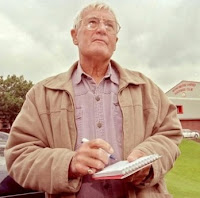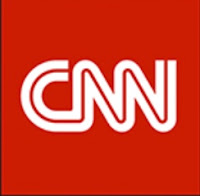Josh Glancy on Twitter: "Victoria Newton's [pictured] confirmation as the new editor of The Sun means half of Britain's national newspaper editors are now female. (This includes The Sun, The Guardian, The Sunday Times, The Financial Times and The Daily Mirror, a good spread)."
From The Times [£] obit on theatre director Terry Hands: "He could rarely resist a jibe at the media. 'Why did you choose journalism?' he asked one interviewer. 'You were obviously a nice person once'.”
Matt Chorley in The Times [£]: "[Dominic] Cummings is not just being talked about, he is dominating the national political conversation. In fact analysis for Red Box by Daniel Clark, a Times interactive journalist, shows that since Boris Johnson became prime minister Cummings has had more press coverage than any member of the cabinet. In the past six and a half months, there have been more than 3,007 stories in national newspapers about the PM’s official adviser, ahead of every elected member of the government."
Adam Boulton in the Sunday Times [£]: "Johnson proudly told MPs: 'I am a journalist', but his career in print was notable for its partisan brio rather than devotion to facts. As prime minister he has gone along with avoiding interviews and question-and-answer sessions. He has threatened the BBC and political journalists with radical change. As shown with his Brexit night video, he has expanded the government payroll to include technicians capable of getting his message out on social media without calling in independent MSM professionals."
Sarah Scire on NiemanLab: "The New York Times’ decade-plus march from crisis to sustainability to growth hit another happy milestone today: The company announced it had generated more than $800 million in digital revenue in 2019. That meets a corporate goal set four years ago to hit that number by the end of 2020. (Like a good journalist, the Times even beat deadline.)"
Emily Bell on Twitter: "Journalism will be like football. Securely wealthy or publicly funded are the Premier League, the richest few have generous staffing levels, but if they want the field to survive they will need to loan players/invest in lower leagues.....just like the old days."
Labour deputy leader candidate Richard Burgon on Novara Media: “It would be fantastic if the Labour movement could invest in its own free newspaper given out on public transport because that is when people will read it. Written in a tabloid style”
Ian Murray, another candidate for the deputy Labour leadership, in The Times [£]: “We are not a protest movement handing out newspapers outside stations. Blaming the media for our defeat is also a pathetic excuse for our failings. We lost because voters didn’t trust our leadership.”
[£]=paywall












































